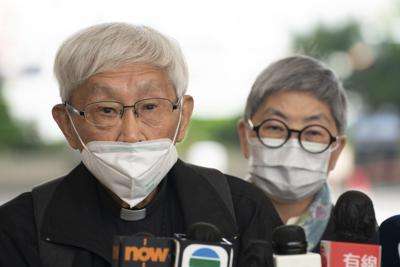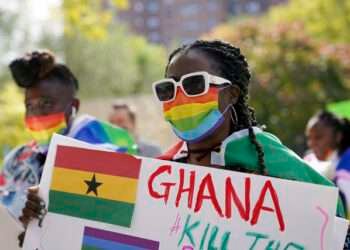Hong Kong court has convicted Cardinal Joseph Zen and five others over their involvement in the creation of a pro-democracy protest fund.
The 90-year-old Catholic cardinal and five others were fined after being found guilty on Friday, November 25, 2022 of failing to register a now-defunct fund that aimed to help people arrested in the widespread protests three years ago.
Cardinal Joseph Zen and five others, including the Cantopop singer Denise Ho, breached the Societies Ordinance by failing to register the now-defunct “612 Humanitarian Relief Fund” that was partly used to pay protesters’ legal and medical fees.
Cardinal Joseph Zen, a retired bishop and a vocal democracy advocate of the city, arrived at court in a black outfit and used a walking stick.
Zen was first arrested in May on suspicion of conspiring with foreign forces under a Beijing-imposed National Security Law.
His arrest sent shockwaves through the Catholic community, although the Vatican only stated it was monitoring the development of the situation closely.
While Zen and other activists at the trial have not yet been charged with national security-related charges, they were charged with failing to properly register the 612 Humanitarian Relief Fund.
The fund helped to pay medical and legal fees for arrested protesters beginning in 2019. It ceased operations in October 2021.
Zen, along with singer Denise Ho, scholar Hui Po Keung, former pro-democracy lawmakers Margaret Ng and Cyd Ho, were trustees of the fund.
They were each fined 4,000 Hong Kong dollars ($512). A sixth defendant, Sze Ching-wee who was the fund’s secretary was fined HK$2500 ($320).
From the onset, all of them had been charged under the controversial China-backed national security law for colluding with foreign forces which carries a maximum penalty of life imprisonment.
Those charges were dropped and they instead faced a lesser charge under the Societies Ordinance, a century-old colonial-era law punishable with fines.
The Societies Ordinance requires local organizations to register or apply for an exemption within a month of their establishment. Those who failed to do so face a fine of up to HK$10,000 ($1,273), with no jail time, upon first conviction.
The court heard in September that the legal fund raised the equivalent of $34.4 million through 100,000 deposits.
In addition to providing financial aid to protesters, the fund was also used to sponsor pro-democracy rallies, such as paying for audio equipment used in 2019 during street protests to resist China’s dominance.
Handing down the verdict, Principal Magistrate Ada Yim ruled that the fund is considered an organization that is obliged to register as it was not purely for charity purposes.
Hong Kong’s Pro-Democracy Movement Crippled By The National Security Law
The National Security Law has crippled Hong Kong’s pro-democracy movement since its enactment in 2020, with many activists being arrested or jailed in the semi-autonomous Chinese city.
The law was imposed by China over Hong Kong in June 2020 in a bid to control protests. Hong Kong, a former British colony returned to China’s rule in 1997.
Since the imposition of the law, most of the city’s prominent pro-democracy figures have either been arrested or gone into exile, while several independent media outlets and non-government organizations have been jeopardized.
The impact of the law has also damaged faith in the future of the international financial hub, with a growing number of young professionals responding to the shrinking freedoms by emigrating overseas.
The Hong Kong government has repeatedly denied criticism that the law which criminalizes acts of secession, subversion, terrorism, and collusion with foreign forces has stifled freedoms.
Instead, the government claimed that it has restored order in the city after the 2019 protest movement.
READ ALSO: Government’s decision to freeze public employment is not new- Augustin Gammey




















